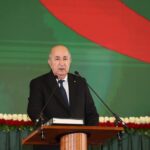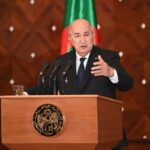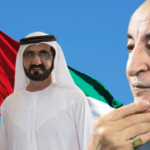Le vice-président égyptien Omar Souleiman était le candidat préféré d’Israël pour remplacer le président Hosni Moubarak et s’entretenait quotidiennement avec Israël à travers un « téléphone rouge », révèle un câble de Wikileaks publié par le Telegraph de Londres lundi.
Dans une note diplomatique américaine de 2008, remise au quotidien britannique par WikiLeaks, on peut lire que David Hacham, un conseiller du ministère israélien de la Défense, désignait Omar Souleiman, épelé « Soliman » dans certains câbles, pour prendre la relève.
« Hacham était très élogieux sur Soliman et soulignait que la « hot line » établie entre le ministère israélien et le Renseignement égyptien était utilisée quotidiennement » précisait le câble envoyé par l’ambassade des Etats-Unis à Tel-Aviv.
« Hacham affirmait que les Israéliens pensent que Soliman pourrait au minimum occuper la fonction de vice-Président si Moubarak venait à mourir ou qu’il était frappé d’incapacité » ajoute le câble.
« Nous nous en remettons à notre ambassade au Caire pour l’analyse des scénarios de succession mais il est indiscutable qu’Israël a une préférence marquée pour l’option Omar Soliman » conclut le câble.
(portalangop.co.ao)
Câble Wikileaks
DEFENSE MINISTER BARAK’S DISCUSSIONS IN EGYPT FOCUS ON SHALIT, TAHDIYA, ANTI-SMUGGLING, AND IRAN
Ref ID: 08TELAVIV1984
Date: 8/29/2008 14:23
Origin: Embassy Tel Aviv
Classification: SECRET
Destination:
Header: VZCZCXYZ0000OO RUEHWEBDE RUEHTV #1984/01 2421423ZNY SSSSS ZZHO 291423Z AUG 08FM AMEMBASSY TEL AVIVTO RUEHC/SECSTATE WASHDC IMMEDIATE 8244INFO RUEHAM/AMEMBASSY AMMAN PRIORITY 4676RUEHLB/AMEMBASSY BEIRUT PRIORITY 4329RUEHEG/AMEMBASSY CAIRO PRIORITY 2683RUEHDM/AMEMBASSY DAMASCUS PRIORITY 5091RUEHLO/AMEMBASSY LONDON PRIORITY 1952RUEHFR/AMEMBASSY PARIS PRIORITY 0171RUEHRH/AMEMBASSY RIYADH PRIORITY 1335RUEHJM/AMCONSUL JERUSALEM PRIORITY 0365RHEHNSC/NSC WASHDC PRIORITY
Tags: PREL,PGOV,PTER,EG,KPAL,IR,IS
S E C R E T TEL AVIV 001984 SIPDIS E.O. 12958: DECL: 08/29/2018 TAGS: PREL, PGOV, PTER, EG, KPAL, IR, IS SUBJECT: DEFENSE MINISTER BARAK’S DISCUSSIONS IN EGYPT FOCUS ON SHALIT, TAHDIYA, ANTI-SMUGGLING, AND IRAN Classified By: DCM Luis G. Moreno, Reason 1.4 (b) (d)
1. (S) Summary. Defense Minister Ehud Barak’s August 23 visit to Egypt was a success, according to MOD Arab Affairs Adviser David Hacham. Barak’s meetings with President Mubarak, Intelligence Minister Soliman, and Defense Minister Tantawi focused on reviving negotiations for the release of Corporal Shalit, the Israeli assessment of the Tahdiya (Calming) with Hamas in Gaza, and Egypt’s anti-smuggling efforts. Hacham said the Israelis were « shocked » by President Mubarak’s aged appearance; their most substantive exchanges were with Soliman. Hacham said Iran was also on the agenda, with the Israeli and Egyptian sides agreeing they had a common strategic interest in containing Iran’s regional ambitions. Our sense is that the Israeli-Egyptian relationship is gradually improving since the beginning of the Tahdiya in June. Barak and MOD in particular are committed to maintaining a strategic relationship with Egypt. MFA Director General Abramovich reportedly also is planning to visit Egypt next week to meet Foreign Minister Abul Gheit. End Summary.
2. (S) MOD Arab Affairs Adviser David Hacham, who was a member of Barak’s delegation, provided Pol Couns with an overview of Barak’s August 23 discussions with the Egyptian leadership in Alexandria. Hacham restricted himself to a broad overview of the three meetings (Mubarak, Soliman, and Tantawi) without describing any of them in detail. On Shalit, Hacham said the Egyptians confirmed that their discussions with Hamas had broken down. Hamas had refused to attend a meeting Soliman tried to arrange shortly before Barak’s arrival. The Israelis think Hamas feels that the prisoner exchange with Hizballah had strengthened their hand in terms of how many and what kinds of prisoners Israel would be willing to give for Shalit. Soliman was keeping the pressure on Hamas, but the Israelis were frustrated at Hamas’ stalling tactics. In a separate conversation August 29, Egyptian Charge d’Affaires Tarek El Kouni told Pol Couns that Hamas was demanding Egyptian guarantees that Israel would not attack Gaza once Shalit was released.
3. (S) Regarding the Tahdiya, Hacham said Barak stressed that while it was not permanent, for the time being it was holding. There have been a number of violations of the ceasefire on the Gaza side, but Palestinian factions other than Hamas were responsible. Hacham said the Israelis assess that Hamas is making a serious effort to convince the other factions not to launch rockets or mortars. Israel remains concerned by Hamas’ ongoing efforts to use the Tahdiya to increase their strength, and at some point, military action will have to be put back on the table. The Israelis reluctantly admit that the Tahdiya has served to further consolidate Hamas’ grip on Gaza, but it has brought a large measure of peace and quiet to Israeli communities near Gaza.
4. (S) Turning to Egypt’s anti-smuggling efforts, Hacham said Barak had decided to praise Egypt’s performance publicly both in genuine acknowledgement of some improvements in destroying tunnels and in order to show the Egyptians that Israel was capable of praising as well as criticizing them. In private, however, Barak also pushed the Egyptians to do more, particularly in terms of stopping the smuggling well before the arms reach the Gaza border. The Israelis continue to believe that the principle smuggling routes are from the Red Sea coast across Sinai to Gaza, and Hacham complained that the Egyptians were still reluctant to tackle the entire smuggling chain.
5. (S) In terms of atmospherics, Hacham said the Israeli delegation was « shocked » by Mubarak’s aged appearance and slurred speech. Hacham was full of praise for Soliman, however, and noted that a « hot line » set up between the MOD and Egyptian General Intelligence Service is now in daily use. Hacham said he sometimes speaks to Soliman’s deputy Mohammed Ibrahim several times a day. Hacham noted that the Israelis believe Soliman is likely to serve as at least an interim President if Mubarak dies or is incapacitated. (Note: We defer to Embassy Cairo for analysis of Egyptian succession scenarios, but there is no question that Israel is most comfortable with the prospect of Omar Soliman.)
6. (S) Iran reportedly was also on Barak’s agenda. Hacham did not provide details of the discussions, but said Barak and the Egyptian leaders agreed that Israel and Egypt have a common strategic interest in stopping the expansion of Iranian influence in the region, as well as a common view of the threat posed by Iran’s nuclear program.
7. (S) Comment: Barak’s visit and especially his public praise of Egypt’s anti-smuggling efforts is evidence that MOD’s close cooperation with EGIS in negotiating the Tahdiya has resulted in a new atmosphere in Israeli-Egyptian relations. Barak’s visit was preceded by Israeli-Egyptian mil-to-mil talks in Cairo, and will be followed by a visit to Cairo by MFA Director General Aharon Abramovich next week. ********************************************* ******************** Visit Embassy Tel Aviv’s Classified Website: http://www.state.sgov.gov/p/nea/telaviv You can also access this site through the State Department’s Classified SIPRNET website. ********************************************* ******************** CUNNINGHAM
(telegraph.co.uk)






